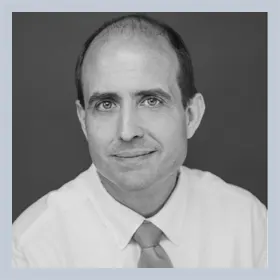Welcome to the ultimate podcast for aspiring leaders and CXOs. Join us as we explore one more fascinating journey of executives and leaders who have proven strategies to lead companies to success, even when times are tough.
In this enlightening edition of Future Focus CXOs, we are glad to meet Tony Clark, SVP of Technologies at Colliers. Tony has expertise in building high-performing technology organizations and fostering talent development. We will talk about the role of cloud in product innovation, team management, leadership & and much more.
Topics Discussed
2:12 - Mentors were quite important in determining my career path. I started at AT&T as a developer, and their well-organized onboarding program gave me the tools I needed to succeed by teaching me effective communication and corporate culture. Upon moving into an enterprise architect position, I realized I had a talent for diving into intricate problems and organizing components to tackle significant business obstacles.
Even while I was doing well as a solo contributor, I soon discovered that full-time management was my passion. Making the switch to Cox Enterprises was a big change that presented fresh learning chances.
Resigning from AT&T during a fruitful tenure was a significant, though unconventional choice. I spent 13 years working for Cox, where I was exposed to a wide range of situations and priceless lessons. Making the bold move to switch firms paid off and greatly aided in my career development.
Whether adopting leadership roles, changing businesses, or learning from varied experiences, these milestones collectively reflect my successful career path.
4:45 - Indeed. Having held a variety of architectural positions at AT&T, I put in place procedures that provided safety and prebuilt solutions to ensure the business's profitable and safe expansion. I established the Shared Services Engineering and Development Organization in the early stages after noticing a similar requirement at Cox Enterprises. Responsible for 50,000 employees' self-service skills and the internal corporate portal made it clear that a separate enterprise architecture unit was required to take on more challenging problems and provide long-term, safe solutions.
When I brought up the idea of an enterprise architecture function to Greg and the CIO, they both agreed and supported the initiative. We started a private cloud for shared services, utilizing the capabilities of an existing data center to provide secure cloud capabilities. In addition to helping Cox Enterprises, this strategy paved the way for cooperation with subsidiaries, enabling them to pool resources and cooperate.
8:05 - Undoubtedly, the key advantage lies in its ability to eliminate the traditional lifecycle hurdles associated with procuring and scaling infrastructure. Cloud capabilities work in harmony with agile approaches, which prioritize flexibility and incremental progress. When combined with cloud technology, agile makes it possible to define and build products in smart increments. This method makes it easier to scale infrastructure flexibly and makes necessary adjustments without unwanted.
As companies ascend the cloud stack into the platform as a service or applications as a service, a rich mix of building blocks becomes available, tailoring solutions to specific business needs. The rise of "FinOps" and cost management strategies reflect the necessity of tracking expenses and optimizing cloud spending effectively. Successful adoption requires strategic planning, embracing a hybrid approach, and an overarching view of the business problem at hand.
13:35 - A big part of my leadership experience has been learning how to delegate well. In delegation, success is determined by setting goals, tracking advancement, and interacting with the team efficiently and effectively rather than following a predetermined path. It is crucial to give the staff the freedom to handle the technical parts while utilizing their expertise.
Establishing a common definition of success that takes into account evaluation standards, metrics, status updates, and flexibility in the face of change is crucial. My job is to remove barriers, ensure successful communication, and facilitate success while team members tackle the technical details. The difficulty for a manager is to avoid micromanaging and instead let the team focus on the specifics that are essential for development.
In the early stages of management, it's common to meddle more than needed. However, recognizing when to step back and let the team handle details fosters a culture of learning and autonomy. Knowing where the team needs guidance and where personal attention is essential is crucial for effective leadership. It's a balance of giving in and giving up, understanding where leadership is most needed, and ensuring time is optimally spent where it truly matters. Ultimately, effective delegation and team building revolve around trust, clear communication, and recognizing when to provide support and when to empower the team to navigate their path to success.
15:45 - The onset of COVID-19 impacted my roles to a great extent. My primary focus was making the team effective in a remote setting while addressing issues stemming from a reduced workforce.
Three critical aspects guided my approach during this period. First, establishing a shared culture was paramount. Second, addressing the team's understanding of organizational purpose and aligning communication was crucial.
The third key element was effective communication in a remote-only environment. For aspiring CXOs, my advice is to surround themselves with mentors, prioritize effective communication, and embrace boldness in seizing opportunities without delay. Building a network of advisors, honing communication skills, and being bold in pursuing opportunities are key principles for success.




